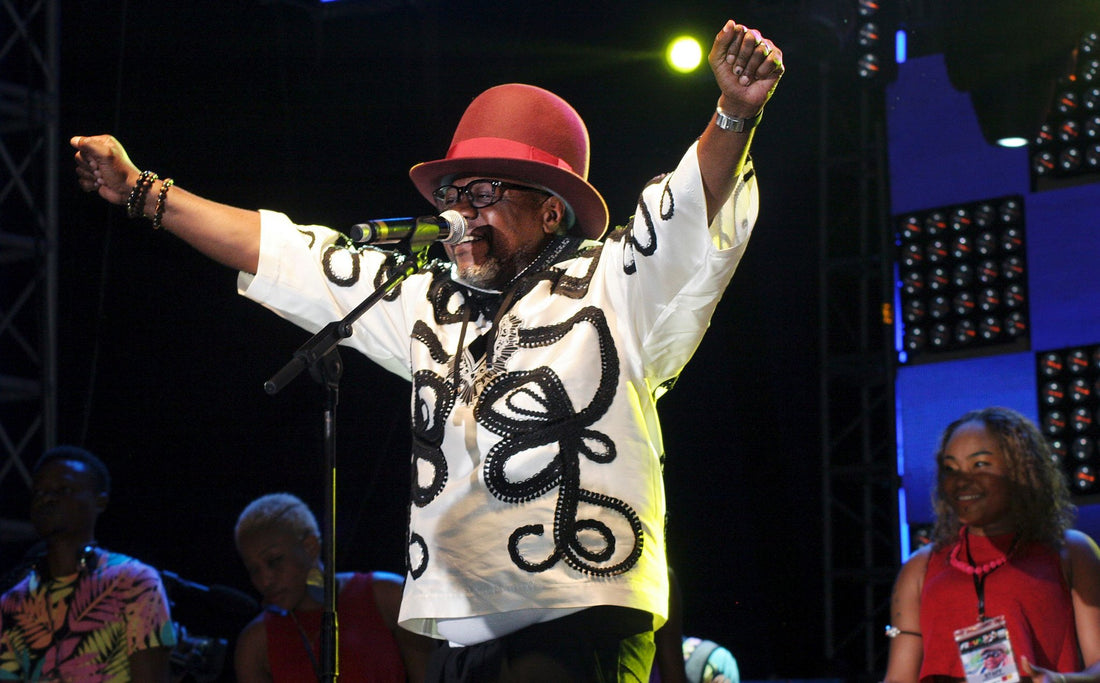
Celebrating Papa Wemba: His Legacy and Influence on Afrobeats
Celebrating Papa Wemba: His Legacy and Influence on Afrobeats

Papa Wemba, born Jules Shungu Wembadio Pene Kikumba, was a Congolese music legend who left an indelible mark on African music and culture. Known as the "King of Rumba Rock," his contributions to the music scene during his era were profound and far-reaching. Let's explore the impact of his music and its influence on the contemporary Afrobeats culture.
The Rise of a Legend
Papa Wemba began his musical journey in the late 1960s with the group Zaiko Langa Langa, a band that revolutionized Congolese music by incorporating youthful energy and modern sounds into traditional Congolese rumba. His charismatic stage presence and unique voice quickly made him a standout figure.
In the 1970s, Papa Wemba formed his band, Viva La Musica, which became a symbol of the La Sape movement, a subculture in Kinshasa and Brazzaville that emphasized elegance and style. This movement not only influenced fashion but also the identity and expression of African youth, blending music with a sense of cultural pride and modernity.
Musical Innovation
Papa Wemba's music was characterized by its fusion of traditional African rhythms with contemporary sounds, including elements of rock, pop, and soukous, a genre of dance music that originated in the Congo. His innovative approach helped modernize African music and made it more accessible to international audiences.
Songs like "Maria Valencia," "Show Me the Way," and "Yolele" became international hits, showcasing his ability to blend Congolese rhythms with global music trends. His work paved the way for future African artists to experiment with and blend different musical styles, creating a more globalized sound.
Influence on Afrobeats
While Papa Wemba's primary genre was soukous, his impact on the broader African music scene, including Afrobeats, cannot be overstated. Afrobeats, which originated in Nigeria, draws from various African music traditions, including the rhythmic complexity and melodic richness that Papa Wemba popularized.
Modern Afrobeats artists like Burna Boy, Wizkid, and Davido have cited African musical legends, including Papa Wemba, as influences. His emphasis on high-energy performances, stylish presentation, and musical fusion can be seen in today's Afrobeats stars who similarly blend African rhythms with global music trends.
Moreover, the La Sape movement’s influence on fashion and cultural identity has parallels in the Afrobeats culture, where artists often use their music and style to express cultural pride and contemporary African identity.
Legacy and Continued Influence
Papa Wemba's sudden death in 2016 during a performance was a significant loss to the music world. However, his legacy lives on through the music he created and the cultural movements he inspired. His work continues to be a source of inspiration for both established and emerging artists in the Afrobeats genre.
His ability to bridge traditional and contemporary music serves as a blueprint for Afrobeats artists who aim to take African music to global heights. Papa Wemba's influence ensures that African music remains dynamic, evolving, and globally relevant.
Papa Wemba was not just a musician; he was a cultural icon who transformed African music and influenced generations of artists. His impact on the music of his era and the burgeoning Afrobeats culture is a testament to his genius and enduring legacy. As Afrobeats continues to gain global recognition, the foundational work of legends like Papa Wemba remains ever more critical, reminding us of the rich, interconnected history of African music.
For more insights into Papa Wemba's life and legacy, you can explore detailed articles and tributes available on music platforms and cultural websites. His story is a vital chapter in the history of African music and its global influence.
